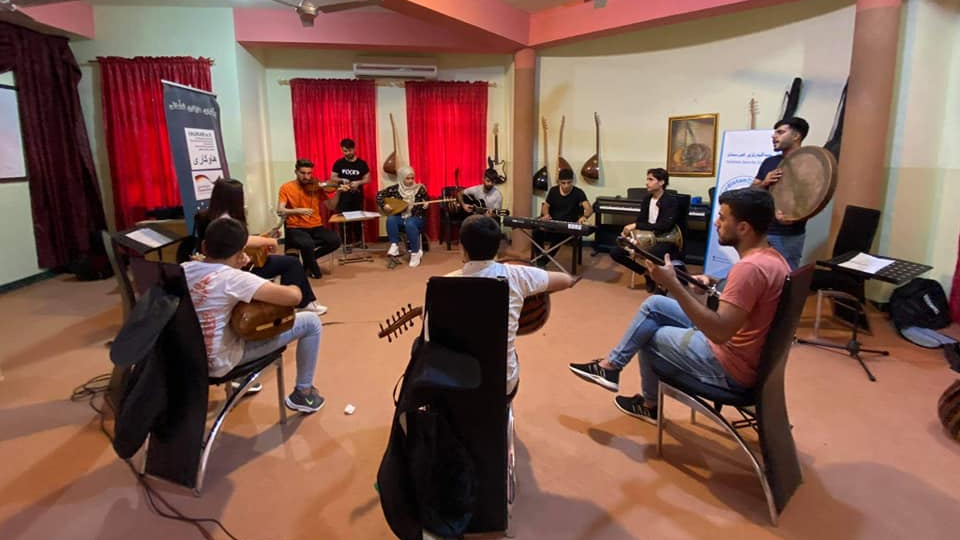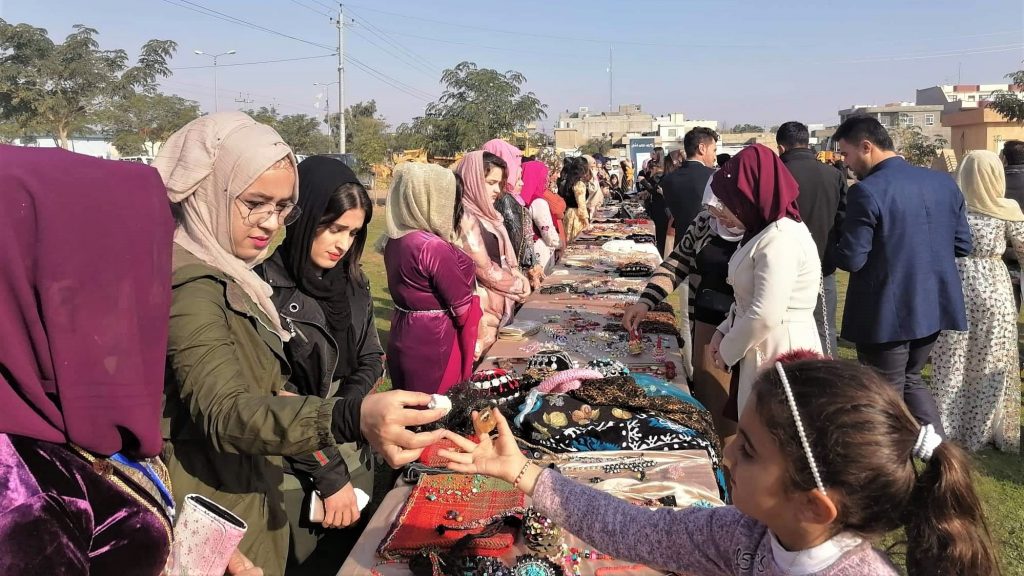“Art connects” – Strengthening Art and Culture Groups in the Diyala Province
Table of Contents

Background
The project “Art Connects” is based in the Iraqi province of Diyala. The majority population in Diyala is Arab Sunni, but there are also Kurdish, partly Kurdish-Shiite, and Turkmen communities—especially in the cities of Khanaqin and Jalawla—as well as Assyrians. The multi-ethnic city of Khanaqin is part of the so-called “disputed areas,” which are contested territories due to unresolved status regarding their affiliation with either the Iraqi central government or the Kurdistan Regional Government.
In 2014, the province of Diyala was overrun by the terrorist organization Islamic State (IS) and became one of the battlegrounds between IS and the Kurdish Peshmerga, the Iraqi army, and Shiite militias. The city of Jalawla and many surrounding villages were destroyed. Tens of thousands of people fled from IS and Shiite militias to refugee camps and makeshift shelters in and around Khanaqin and to the Kurdish-administered region of Germian.
The current situation in Diyala is shaped by the devastation from the war against IS (2014–2016), the ongoing financial crisis in Iraq, lingering ethnic and religious tensions, and the resurgence of IS and fundamentalist movements. Civil society organizations remain weakly developed. International organizations working in the region mainly focus on basic services for the population and displaced persons and on rebuilding physical infrastructure; there are hardly any efforts dedicated to the cultural and social reconstruction of the region.
Local civil society groups working in arts and culture and for dialogue and peace are largely inoperative due to the destruction of cultural infrastructure and a lack of funding. The public arts and culture sector is also largely dormant.
The aim of the project is to strengthen the role of civil society and public actors in the arts and culture sector in the reconstruction process, to promote their networking across Iraq, and to amplify their perspectives on dialogue and peacebuilding.

The Project
The project involves seven cultural and artist groups based in the cities of Baquba, Jalawla, and Khanaqin in the province of Diyala. These groups are active in the fields of visual arts and street art in their respective cities. They identify as non-partisan, multi-ethnic, and gender-equitable collectives and are committed to combating violence and fundamentalism, promoting interethnic and interreligious dialogue and peace in Iraq, and supporting the active participation of artists in the reconstruction and shaping of Iraq’s societal future.
All groups are in contact with one another and collaborate with local city administrations, departments of culture, art academies, and women’s and human rights organizations.

As part of the project, spaces for the groups’ activities will be renovated or newly established in collaboration with and for these collectives. These spaces will host art, photography, and theater workshops. In addition, the project will facilitate the creation of intercity festivals and dialogue forums.
Over the course of the project, the network of artist groups is expected to develop into a representative body or support structure for artists in Diyala province, which will continue to implement cultural, educational, and dialogue-based activities in cooperation with local authorities beyond the duration of the project funding.

Supporters and Partners
The project lasted from 2020-2023 and was supported by the Federal Ministry for Economic Cooperation and Development of Germany.